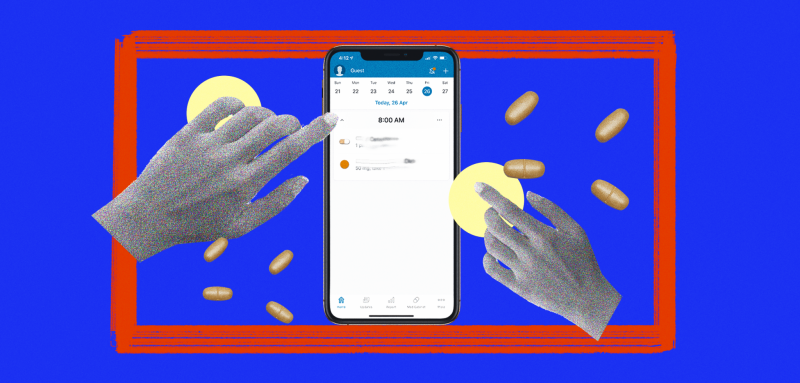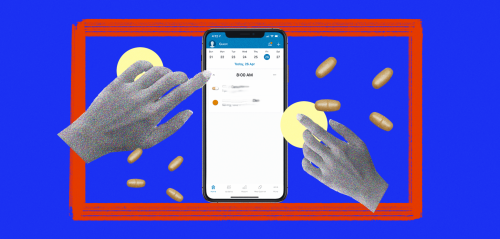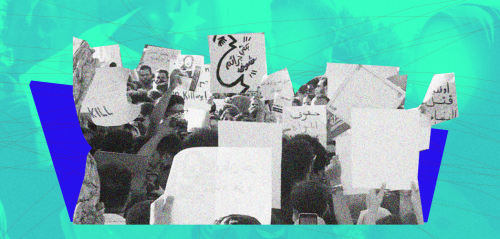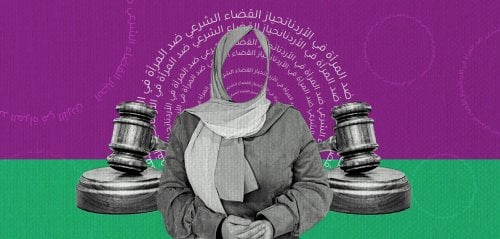Saad al-Khatib, a Jordanian 50-year-old man, suffers from blocked arteries in his heart, in addition to weakness in his main muscle, which forced him to take medications, usually called blood thinners, after a medical consultation.
Doctors advised al-Khatib, a day laborer in a Jordanian restaurant with a salary that does not exceed 500 dinars ($750 dollars) and without medical insurance from the agency he works for, after medical consultations that cost him a lot of expenses, to take two specific types of blood thinners. However, the problem is that the price of these medications is beyond his financial capacity, as one of them costs more than 80 dinars ($112) in Jordan. So some friends advised him to buy them from abroad (Turkey or Egypt), where the price does not exceed $10, which is equivalent to only seven dinars. However, the strict regulations imposed by the authorities on medicines at airports and land borders prevented him from completing his treatment several times, so he had no choice but to turn to the black market for medicines.
Iman Mohammed, a 30-year-old Jordanian suffering from iron deficiency, was shocked by the price of the treatment prescribed by her doctor, which amounted to about 130 Jordanian dinars ($183), even though it was only an iron injection without any other supplements.
Eman is unemployed, has 3 children, and is married to an average employee, whose monthly salary is not enough to secure the family's needs. Therefore, she had no choice but to seek help on one of the pages of the social networking site Facebook, to buy the same medication needles, but at a lower cost, amounting to only 30 dinars.
Need and illness prompted Saad, Iman and many others to rush to buy medicine via the black market, which has flourished as a result of the high prices of medicines in Jordan, compared to their prices in Turkey, Egypt and the West Bank, according to pharmacists that Raseef22 spoke to.
Necessity and disease pushed Saad, Iman and others to buy medicine via the black market, which has flourished due to soaring medicine prices in Jordan.. As Jordanians suffer, high prices, taxes, and corporate profits help an unregulated black market grow
Taxes on medication
The Jordanian government imposes taxes on medicines divided by type. According to the customs tariff, therapeutic medicines are subject to a tax of 4%, while dietary and nutritional supplements and preparations are subject to a tax of 16%.
According to the Pharmacists Syndicate law, pharmacists are prohibited from offering a financial discount on medicines, and this exposes them to punishment and fines. However, there are practices among pharmacies in Jordan that make it possible to cooperate with patients by offering a discount of no more than 10%.
A pharmacist (who preferred not to be named) told Raseef22 that many patients ask for only one pill, or a strip of medication at best, while others ask for the medicine to be recorded as debt until its price is secured.
Expansion of the black market
Raseef22 met with a number of pharmaceutical representatives who explained the reasons for the high prices in the Jordanian kingdom, and said that the increase is a result of the limited Jordanian pharmaceutical market and the taxes imposed on it.
Why have drug prices increased in Jordan, compared to prices in Egypt and the West Bank?
They added that among the reasons is the lack of competitiveness among pharmaceutical companies, in addition to the monopoly of the drug market by a limited number of companies that control prices, achieving high profits.
The aforementioned reasons have expanded the black market for medicines in the kingdom, and there are now pages dedicated to selling medicines smuggled from Turkey and Egypt, according to pharmacists, who add that the problem of drugs entering the country through smuggling is that they're not subject to control or drug quality laws.
A doctor working in the pharmaceutical sector, who preferred not to be named, says that one of the reasons why patients go to the black market is the excessive profits made by companies and pharmacies. The profit in some cosmetics or nutritional supplements may reach up to 3,000% and maybe more. For some medicines, the profit reaches about 500%, according to the doctor, as a drug that costs one dollar can be sold for more than $100 dollars, and these excessive profits are known by the government and regulatory authorities.
In 2022, the Jordanian Prime Minister allowed the entry of personal medicines for patients through border centers, which undermined the decision of the Jordan Food and Drug Administration (JFDA) to prevent the entry of any medicine without customs approval, which opened the door to drug smuggling operations, as the entry of medicines was previously monopolized by the Food and Drug Administration, according to the head of the Drugstores Owners Association (DOA), Dr. Thamer Obeidat.
More than 774 thousand smuggled drugs have been recently seized in Jordan, half of which are steroids and supplements
Mass violations
The customs administration revealed that the volume of medicines seized during the last three years amounted to more than 774,000 drugs, half of which are steroids and supplements. It stated that the number of smuggled stimulant drugs amounted to 343,921 stimulants and food supplements, and that the total number of financial fines exceeded 317 million dinars, while the total number of violations reached more than 11 million violations. The administration added that 98% of counterfeit and fake medicines were subject to destruction, confiscation and fines.
The General Food and Drug Authority stated that in 2018, 56 violations were recorded for the sale of smuggled and counterfeit medicines, as well as 26 cases of smuggled drugs and 30 seizures of counterfeit medicines. In 2019, 21 violations were recorded, along with 10 cases of smuggled drugs and 11 seizures of counterfeit drugs.
In the year 2020, the number of violations recorded by the Food and Drug Administration JFDA reached about 50 violations, while 24 cases of smuggled medicines and 26 cases of counterfeit drugs were reported. In 2021, the number of smuggled medicines was 20, and the number of counterfeit drugs was 24, with a total of 4 violations. In 2022, the number of smuggled drugs reached 50, and the number of counterfeit drugs reached 56, with a total of 106 violations.
Trade union warning and official reassurance
In an official statement, the pharmacists syndicate called on the government to take responsibility for controlling and preventing the entry of medicines under the guise of personal use or through unlicensed and unknown online sites that do not adhere to any medical standards that ensure the health of Jordanians, despite the fact that international standards specify certain regulations, including prescriptions and medical reports, to obtain medication.
The syndicate emphasized that the problem has worsened and has turned into organized trade, especially on social media platforms and some digital applications. Unlicensed and anonymous trade is unsafe, and the first victim is the citizen and their health.
The Food and Drug Administration commented by saying that it is doing its job to the fullest in countering attempts to enter smuggled and counterfeit medicines from outside the kingdom, noting that pharmaceutical companies and factories are working to provide medicines, whether by manufacturing them, or importing them as quickly as possible.
Between official reassurance and union warning, patients continue to search for medication for their illnesses, which they will not be able to obtain at reasonable prices in the absence of a health insurance network that governments have spoken about over the past years, while drug brokers continue to reap more profits at the expense of patients' health.
Raseef22 is a not for profit entity. Our focus is on quality journalism. Every contribution to the NasRaseef membership goes directly towards journalism production. We stand independent, not accepting corporate sponsorships, sponsored content or political funding.
Support our mission to keep Raseef22 available to all readers by clicking here!
Interested in writing with us? Check our pitch process here!









